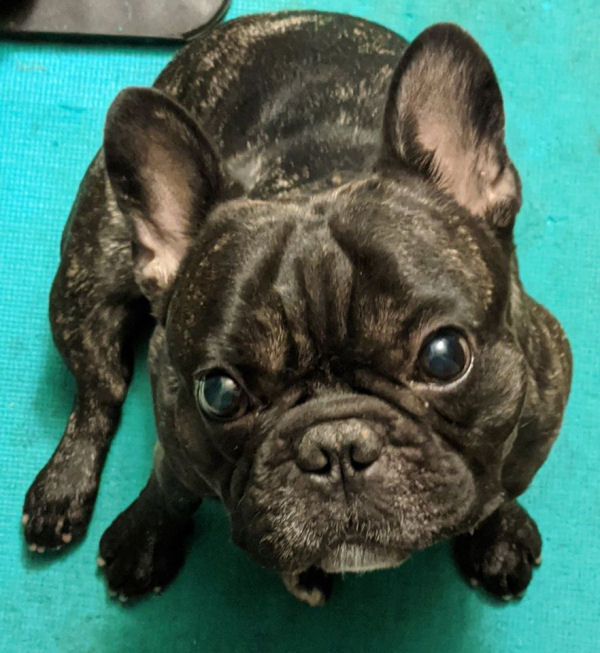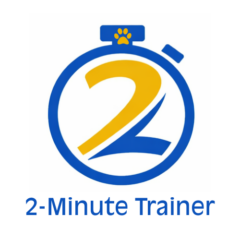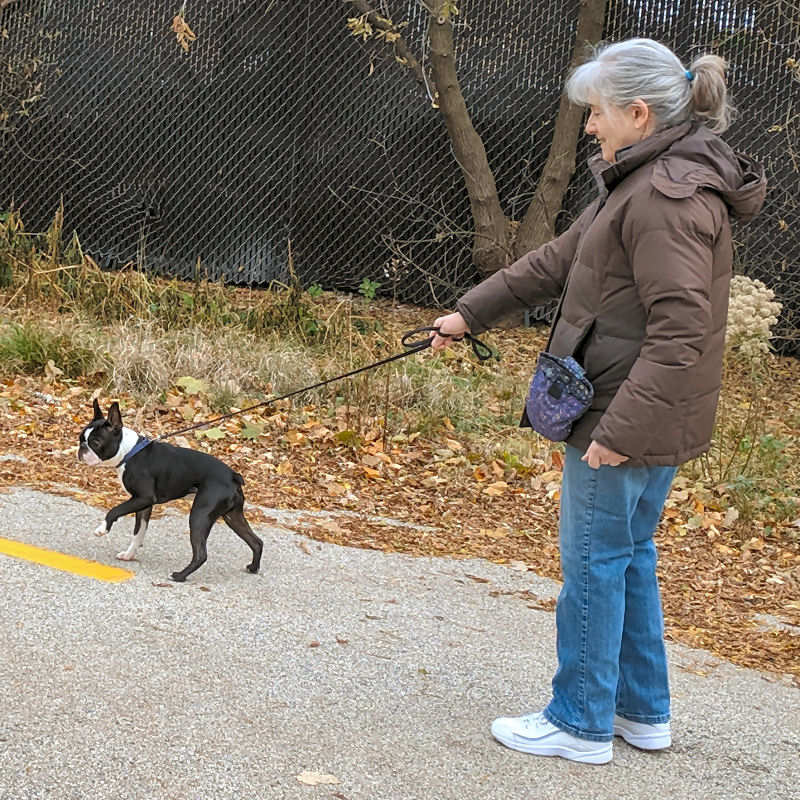
With Valentine’s Day coming up, everybody and their uncle is getting all gushy and throbby-hearty. Nothing wrong with being reminded to show your love. There’s no such thing as too much. And one of the beings in your life that is the epitome of unconditional love is your dog. Pure, unselfish, love is what dogs bring to our lives. And training is that dog love language.
We’ve been hearing about “love language” for a while now – how people relate to five different types of “love language.” We’re not sure why you have to choose, all are valid. And all five are essential parts of dog training. Our conclusion is that one of the best ways to show your dog that their love is appreciated and returned is to play training games every day.
Five love languages
The five labels for love language are:
- Words of affirmation
- Acts of service
- Gifts
- Quality time
- Physical touch
Even just listing them, aren’t you going “check,” “check,” “check” in your head while you’re thinking about training games?
Words of affirmation
This one is a “gimme.” Whether you tend to be quiet or enthusiastic in giving feedback to your dog, they know the click, the “good dog!,” the “atta boy (or girl),” is confirmation of their worth and your love. It’s affirmation up the kazoo. There’s not a dog owner in the world who hasn’t looked into their dog’s eyes and cooed “Who’s a good dog? You’re a good dog!” just to see that tail wag, butt wiggle, and paw dance. Check!
Acts of service
Maybe not in the context of training games, but all the things we do for our dogs. Granted, it’s a responsibility we’ve chosen to take, but that doesn’t minimize its value. Feeding, walking, bathing, cleaning up after – all of those things add up to acts of service for our dogs.
Non-dog people may see this and wonder what we get out of the constant demands on our time and attention, not to mention wallets. And if/when one of them mentions something to that effect, we can shake our heads and pity them. Because they have no idea how great it feels to be completely loved and trusted by a dog. They’ve never looked into a dog’s eyes and seen themselves adored. Isn’t that sad?
Gifts
Maybe all of these are pretty obvious. Whether your dog is food- or toy-motivated, every reward could be considered a gift. It can also be considered payment for a job well done. But our gifts to our dogs aren’t limited to the rewards given in training games. We don’t know any dog owner who hasn’t given their dog something “just because.” Because they’re cute. Or because they’re good. And just because we love them.
Quality time
This is the definition of dog training games. Even if you only manage one two-minute session on some days, for those two minutes your entire attention and focus is on your dog. That’s the gift that every dog cherishes above any other – quality time with you. Even if your training games don’t go the way you expect some days, you still managed to let your dog know they’re important, and loved. (See “Top 10 reasons to play dog training games.”)
Physical touch
This is probably the most common way that people connect with their dogs to let them know they’re loved. Every dog owner can relate to what’s happening when you see a dog shove their muzzle into a person’s hand. Or put a paw on an arm or leg. Dogs not only like physical touch, many are determined to claim it as their due. Dogs aren’t called “pets” for nothing. We like petting them, and they like to be petted. Where’s your dog’s favorite spot? Behind the ears? In front of their tail? How about their jaw/throat? Or is it tummy rubs they love most? Every dog owner knows.
It all translates to love
You’re a lucky person when you have a dog. Especially if you’ve taken the steps to give your dog the enriched and fulfilled life that training games bring. There’s no way you need a translator for dog love language. You’re already fluent.

